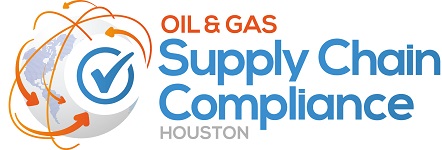Day One
Wednesday April 25, 2018
Day Two
Thursday April 26, 2018
08.00 Day One Chair’s Opening Remarks
Exploring Major Evolving Risks in the Supply Chain and Integrating Trade/Ethics with More Advanced Anti-Corruption Compliance
08.10 SEC Opening Perspective: Recent FCPA Developments and Trends Relating to the Supply Chain
Synopsis
- Self-reporting and cooperation
- Best practices in compliance
- Best practices in handling enforcement inquiries and actions
08.30 Q&A and Open Discussion on Key Evolving Regulatory Risks Impacting the O&G Supply Chain
08.40 Panel Discussion – FCPA and Beyond: Streamlining Trade Compliance and Ethics with Ever-Stronger Anti-Corruption Programs to Integrate and Implement Protection across the Supply Chain
Synopsis
- Enhancing programs that integrate major trade compliance and ethics risks in with anti-corruption and evolving these as businesses evolve; including sanctions, AML and anti-boycott components
- Breaking down the silos between trade and anti-corruption compliance to enable a more comprehensive approach to risk mitigation
- Overcoming the disconnect between the theoretical and practical implementation: How can we ensure implementation of effective, comprehensive compliance programs throughout the business
- Addressing specific hot-button issues, such as data privacy and human rights
09.25 Speed Networking & Morning Refreshments
Designing and Implementing Programs to Enhance Coverage for Trade Sanctions, Import and Export Controls
10.25 Advancing Coverage of Trade Sanctions, Import and Export Controls across the Supply Chain
Synopsis
- Maturing the program to become reactive rather than proactive through a focus on automation and strategic planning
- Building the deeper understanding of trade regulations into the supply chain to mitigate trade compliance risks
- Enhancing documentation procedures, particularly in high-risk territories
- Ongoing training to improve adherence to trade compliance programs
10.45 Q&A and Open Discussion on Applying Trade Sanctions, Import and Export Controls
10.55 Panel Discussion: Implementing Evolving Programs to Protect on the Impacts of Shifting and Targeted Sanctions, Including Ultimate Beneficial Ownership
Synopsis
- Understanding the newest developments and big picture impacts of comprehensive sanctions and targeted sanctions on supply chain activities
- Sanctioned parties and understanding the broadening scope of ultimate beneficial ownership
- Education, training and issue spotting with the Business Development Teams regarding beneficial ownership and changing sanctions regulations (around the world)
- Impacts of changing economic sanctions, financing/credit term limits and beneficial ownership issues in high-risk territories, including Venezuela, Russia, Iran, Sudan, Cuba and Kurdistan, including facilitation on the business
- Applying the expansion of the DAS and Directive 4 for deepwater, Arctic and shale projects globally throughout your supply chain
- Risk assessment for sanctions to ensure resources are focusing on the areas of greatest concern
- Practical approaches to leveraging technology and data
11.35 Roundtables of Actual Impacts of Shifting and Partial Sanctions on the Business
11.50 Lunch & Networking
Designing and Implementing Programs to Enhance Coverage for Trade Sanctions, Import and Export Controls (Continued)
13.00 Managing, Monitoring and Screening Shipments against Restricted Parties to Ensure Equipment and Materials Aren’t Shipped to Blacklisted Entities
Synopsis
- Export licensing regimes and classifications, exercise that a practitioner goes through
- Internal controls to manage and monitor shipped goods and ensure licenses duly obtained where necessary,
- Checking the validity periods of licenses and ensuring shipping to entities specified in licenses
13.20 Q&A and Open Discussion on Managing, Monitoring and Screening Shipments against Restricted Parties
13.30 Exploring DHS / ICE Homeland Security Investigations
Synopsis
- Experience partnering with the private sector on counter-proliferation investigations and initiatives to assist the private sector in better securing their supply chain, due diligence, working with sub-contractors, and third party risk
- Shield America Program
- How Investigations are initiated?
- Collaborating on investigations
- Benefits of public / private sector collaboration
- Case examples highlighting public / private sector partnership
13.50 Q&A and Open Discussion on Improved Implementation of Customs Compliance
14.00 Anti-Dumping: Careful Vetting of Non-Standard Imports Such as Miscellaneous Machinery and Parts to Ascertain It’s Not Subject to Anti-Dumping Legislations
Synopsis
- Enhancing the checking before authorizing an import, including the seller, description, country of origin and classification of items
- Engaging closely with Procurement and Accounting to properly prepare for an antidumping audit
- Identifying where Procurement should consider alternatives such as sourcing domestically, from another country, or an alternate material
- Enabling the actual implementation of anti-dumping policies and procedures
14.20 Q&A and Open Discussion on Applying Anti-Dumping Policies and Implementation
14.30 Afternoon Refreshments & Networking
3rd Party Due Diligence and Embedding Human Rights Legislation into the Supply Chain
15.10 Fireside Chat: Being Practical – Understanding How the Top Global Companies are Managing International Modern Slavery & Conflict Minerals Regulations
Synopsis
As corporate social responsibility policies gain steam in the business world, companies are facing increased pressure to evaluate their supply chain’s labor practices. Join Carlos Alvarado, Global Supply Chain GRC Program Manager at Baker Hughes, a GE company, and Travis Miller, General Counsel at Assent Compliance, as they discuss the practical realities and due diligence obligations embedded in slavery, human trafficking and labor practice disclosures — and how they impact the oil and gas industry.
15.50 Panel Discussion: Evolving Focuses of Human Rights Legislation and How to Embed These across the Supply Chain
Synopsis
- Understanding and developing oversight of forced labor laws, including the UK Modern Slavery Act
- Exploring how customs are focusing more inquiries now around how labor is used in manufacturing items that are being imported
- Engaging business partners and supply chain to embed better processes, including 3rd party due diligence to ensure no forced, trafficked or child labor in the supply chain
- Moving beyond relying on supplier and subcontractor codes of conduct for more certification around trafficked and forced labor






